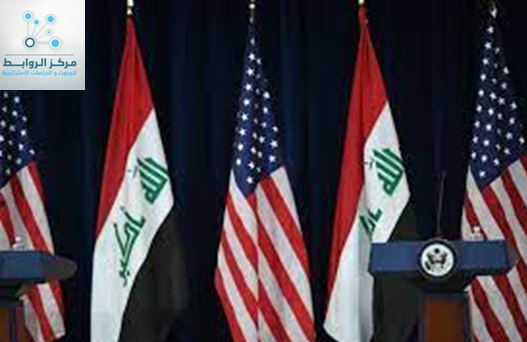Yesterday, Sunday, Iraqi Prime Minister Mustafa Al-Kadhimi arrived in the American capital, Washington, on an official visit, to hold the fourth round of the strategic dialogue between the two countries in light of the field data and developments on the Iraqi arena, the results of the presidential elections in Iran and the nature of the ongoing dialogues between the (4+1) group. And the United States of America and the increase in attacks on American interests in Iraq by Iranian-backed armed factions.
This visit gives strategic dimensions related to the upcoming strategic relationship with the US administration and future prospects at all levels, including the US military presence in Iraq, which includes 2,500 American military personnel are present in a number of military sites and are working to confront the attacks and sabotage acts of ISIS gangs and protect the security and stability of Iraq from these criminal acts, in addition to the continuous coordination and high training carried out by the American military organization to develop the combat capabilities of the Iraqi military forces.
We believe that this dialogue will shed light on the Iraqi government’s relationship with the Iranian regime and its influence, and this is what made the course of negotiations take wide dimensions from the process of compatibility between the relationship between Baghdad, Tehran and Washington, meaning that Mustafa Al-Kazemi has contributed to strengthening the framework of relations and the supreme interest of the Iraqi people and maintaining the state of communication between all parties and preventing the use of Iraqi territory to settle scores between Washington and Tehran at the expense of Iraqi blood, and the American administration’s awareness of the difficulty that Al-Kazemi faces in his relationship with some parties that reject the American presence in Iraq.
The results of the dialogue were in line with Al-Kazemi’s keenness to preserve Iraq’s unity and security, especially since Iraq is on the verge of a parliamentary election next October, which will define the parameters of internal and foreign policy and Arab, regional and international relations, which requires all political forces and parties to It is aware of this fact and works in agreement to implement it and work with it in order to achieve the supreme interest of the Iraqi people, who have suffered many crises, problems and challenges that continue to this day.
Since the outcomes of the security dialogue and the implementation of the strategic agreement between the United States of America and Iraq did not suit some Iraqi political forces, which aimed at the complete withdrawal of American forces from Iraq, which is the same goal as Mustafa Al-Kazemi, but his political realism, it worked to frame its role in Iraq to be the forces of Training and advisory forces instead of combat forces. The dialogue also confirmed that the forces present in Iraq are the international coalition forces, and they are Iraqi bases, and that the members of the international coalition forces are subject to the laws in force in Iraq, and this matter is credited to the Iraqi negotiating delegation, which made Iraq’s supreme interest in its negotiating priorities.
Hence came many of the paragraphs that emphasized respect for Iraq’s sovereignty, respect for basic human rights, including the right of expression and freedom of the press, and the protection of political activists and civil society institutions from any abuses by those who tampered with the security and safety of society. Emphasis on holding elections on time, ensuring their integrity, and ensuring the protection of voters and international observers.
Iraqi Studies Unit

